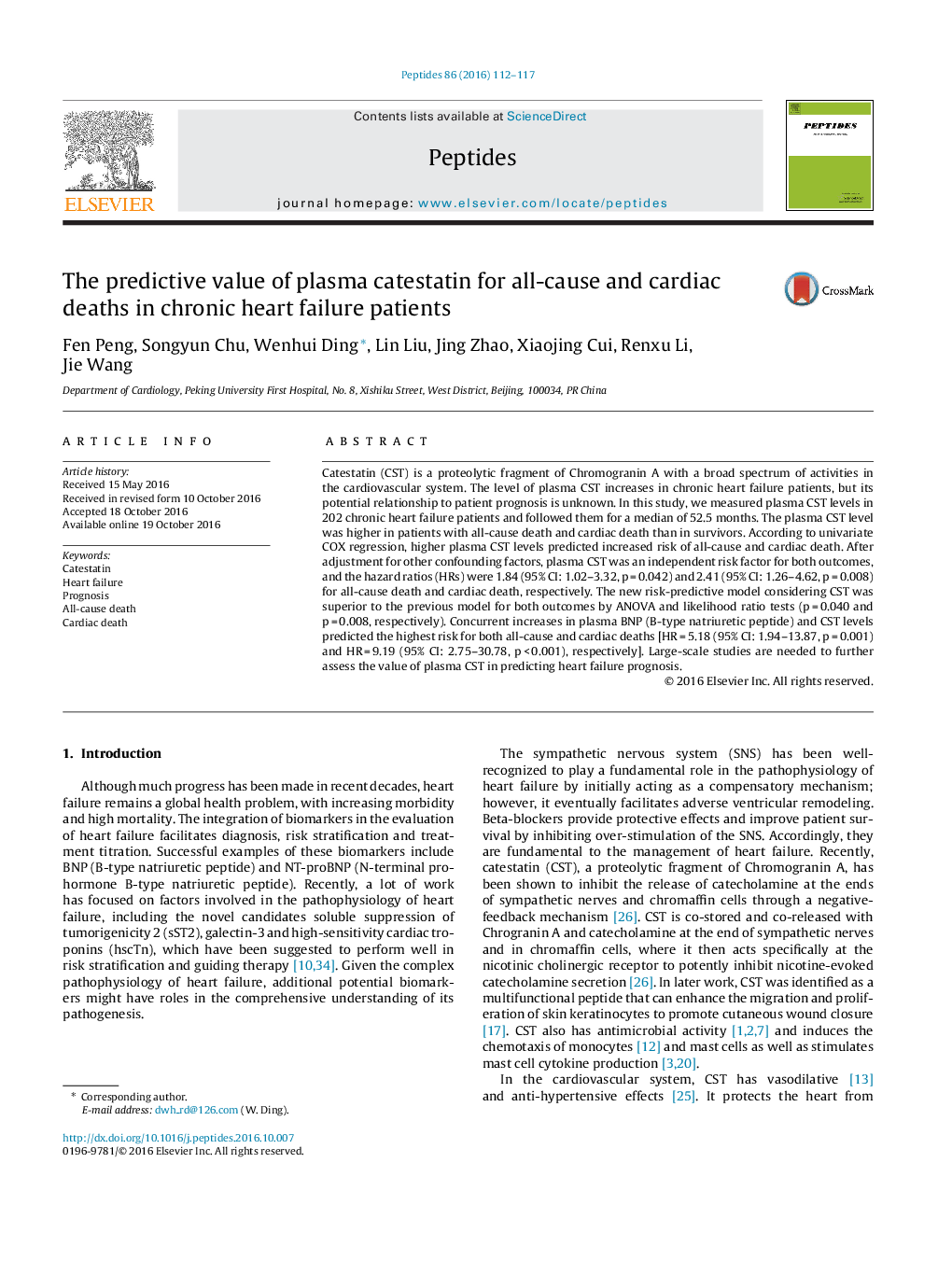| Article ID | Journal | Published Year | Pages | File Type |
|---|---|---|---|---|
| 5514739 | Peptides | 2016 | 6 Pages |
In the present study, we found:â¢Plasma CST in chronic heart failure patients with all-cause death or cardiac death were higher than survivors.â¢Plasma CST levels predicted both all-cause and cardiac death in chronic heart failure patients.â¢Plasma CST added incremental information to BNP and other predictors to fit in a prognostic model for heart failure patients.â¢Patients with concurrent increasing BNP and CST levels are at the greatest risk of both all-cause and cardiac death.
Catestatin (CST) is a proteolytic fragment of Chromogranin A with a broad spectrum of activities in the cardiovascular system. The level of plasma CST increases in chronic heart failure patients, but its potential relationship to patient prognosis is unknown. In this study, we measured plasma CST levels in 202 chronic heart failure patients and followed them for a median of 52.5 months. The plasma CST level was higher in patients with all-cause death and cardiac death than in survivors. According to univariate COX regression, higher plasma CST levels predicted increased risk of all-cause and cardiac death. After adjustment for other confounding factors, plasma CST was an independent risk factor for both outcomes, and the hazard ratios (HRs) were 1.84 (95% CI: 1.02-3.32, p = 0.042) and 2.41 (95% CI: 1.26-4.62, p = 0.008) for all-cause death and cardiac death, respectively. The new risk-predictive model considering CST was superior to the previous model for both outcomes by ANOVA and likelihood ratio tests (p = 0.040 and p = 0.008, respectively). Concurrent increases in plasma BNP (B-type natriuretic peptide) and CST levels predicted the highest risk for both all-cause and cardiac deaths [HR = 5.18 (95% CI: 1.94-13.87, p = 0.001) and HR = 9.19 (95% CI: 2.75-30.78, p < 0.001), respectively]. Large-scale studies are needed to further assess the value of plasma CST in predicting heart failure prognosis.
